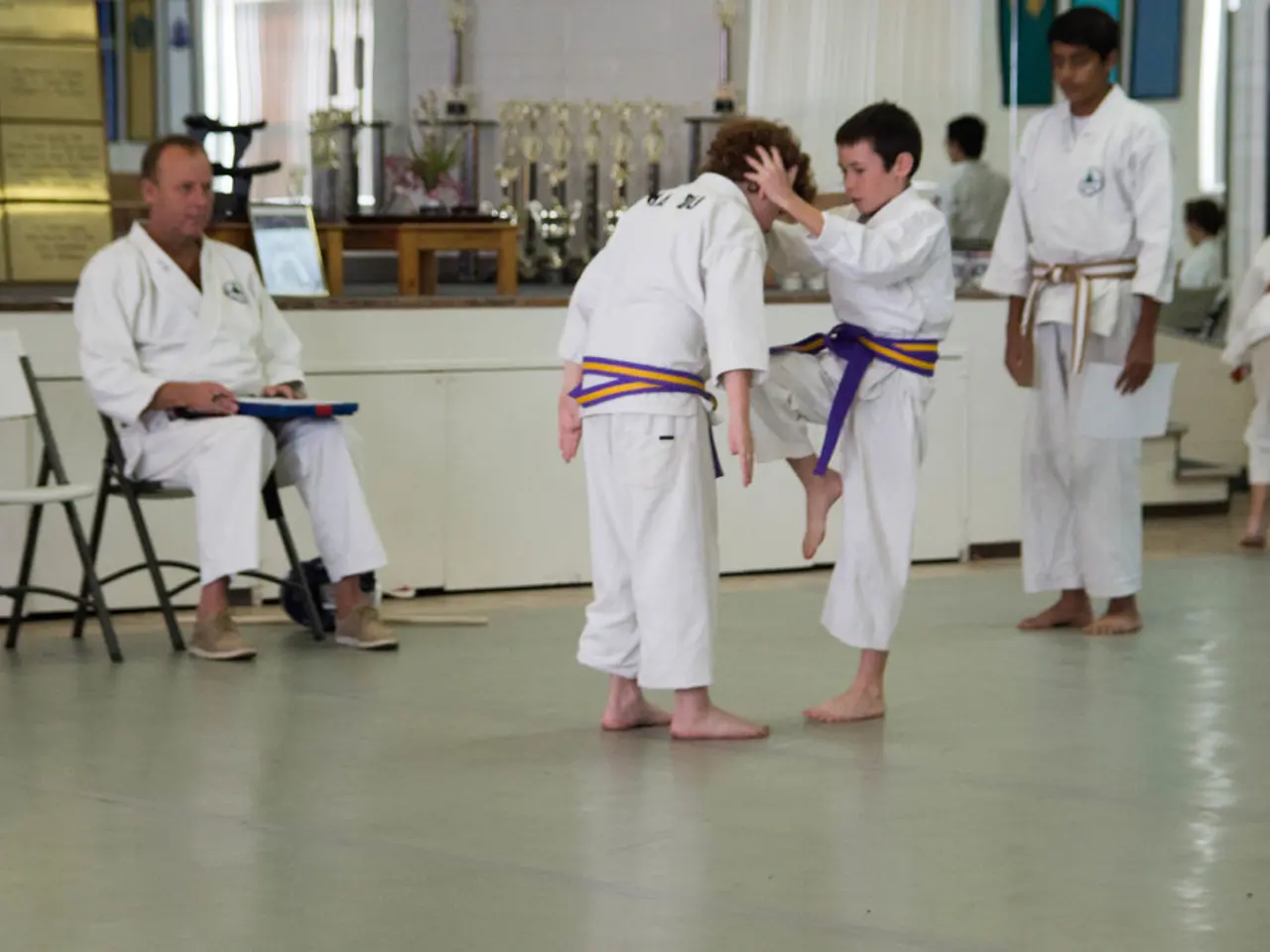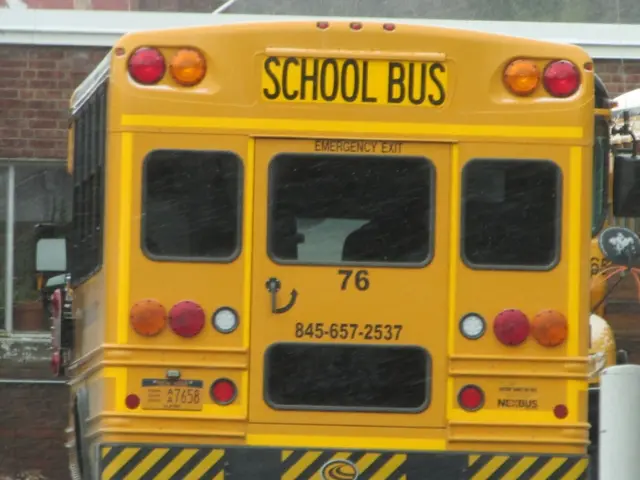Child Discipline in Kindergarten: A Parent's Guide
In a fun and engaging activity, families are invited to create their own puppets and introduce them to each other, sharing their favourite things. This activity, edited by Rose Fisher Merkowitz, Kathy L. Jelley, and Scott Scheer, not only fosters family bonding but also provides an opportunity to learn about effective strategies for positive discipline in child development.
Positive discipline, as opposed to punishment or power struggles, emphasises respect, empathy, consistency, and empowering children to learn from their experiences. Effective tips for positive discipline include setting clear expectations and consequences, encouraging responsibility and self-regulation, teaching problem-solving skills, changing the environment to support positive behaviour, and fostering connection with the child before correcting behaviour.
Key strategies for positive discipline are:
- Setting clear, consistent rules and consequences that are fair, understandable, and related to the behaviour, involving the child in this process when possible.
- Using "I" statements to encourage children to take ownership of their actions, prompting them to reflect on consequences and develop responsibility.
- Teaching problem-solving and decision-making skills by using open-ended questions, modeling thought processes, and providing practice opportunities.
- Reinforcing positive behaviour with praise and attention, while redirecting or removing attention from minor challenging behaviour to encourage better choices.
- Adjusting routines and environment (e.g., timing of activities, reducing stress points) to prevent behavioural issues before they arise.
- Building a strong connection with the child before addressing misbehaviour, creating moments of safety and understanding that foster cooperation rather than conflict.
- Allow natural consequences when appropriate, helping children learn cause and effect firsthand.
Avoid relying solely on traditional praise (like “Good job”) as it may be less effective than encouraging a growth mindset and acknowledging effort. Instead, focus on praising the process and progress.
The materials needed for this homemade puppet activity are simple and easy to find: paper lunch sacks or old socks, scissors, glue, markers, and optional materials such as yarn, buttons, fabric scraps, etc. Families can create a puppet for each member and pet, holding the sack or sock upside down and drawing a face on it, using other materials for hair and clothes.
Once the puppets are complete, families can come together to perform a puppet show for each other, further encouraging family bonding and providing a fun and creative outlet for expression. For those seeking additional insights on positive discipline and child development, the book "Raising a Self-Disciplined Child" by R. Brooks and S. Goldstein may be a valuable resource.
This activity is adapted from B. Grawemeyer and B.M. Kelbaugh's "I Am Special" Cloverbud Program Curriculum Instruction Materials. By participating in this activity, families can not only create memorable experiences together but also learn valuable strategies for promoting positive child development and strengthening parent-child relationships.
During the puppet-making activity, families can discuss and apply key strategies for positive discipline, such as setting clear, consistent rules, using effective communication, teaching problem-solving skills, and promoting connection. This activity not only encourages family bonding but also serves as an opportunity for learning about effective parenting, health-and-wellness, education-and-self-development, and parenting strategies that foster a nurturing and supportive home environment, especially in areas of 4-H science and overall health and wellness. By combining the joy of puppet-making with valuable lessons on positive discipline, families can strengthen their connections, enhance their understanding of child development, and enrich their lives in various aspects, including health-and-wellness, education-and-self-development, and parenting.







